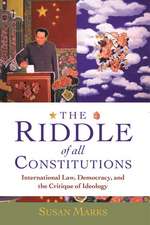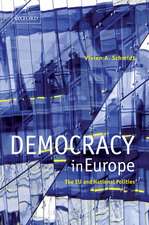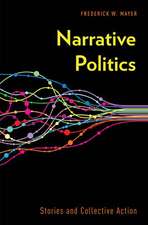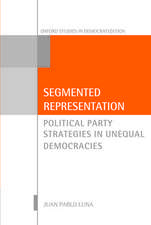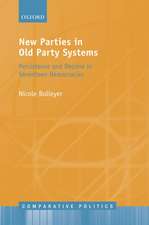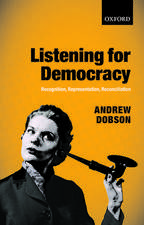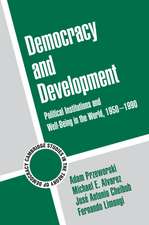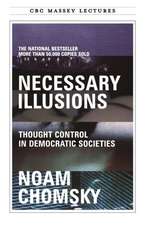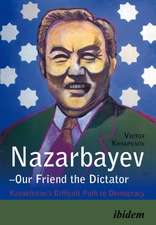Beyond Adversary Democracy
Autor Jane J. Mansbridgeen Limba Engleză Paperback – 15 iun 1983
"Beyond Adversary Democracy should be read by everyone concerned with democratic theory and practice."—Carol Pateman, Politics
"Sociologists recurrently complain about how seldom it is that we produce books that combine serious theorizing about important issues of public policy with original and sensitive field research. Several rounds of enthusiastic applause, then, are due Jane Mansbridge . . . for having produced a dense and well written book whose subject is nothing less ambitious than the theory of democracy and its problems of equality, solidarity, and consensus. Beyond Adversary Democracy, however, is not simply a work of political theory; Mansbridge explores her abstract subject matter by close studies (using ethnographic, documentary, and questionnaire methods) of two small actual democracies operating at their most elemental American levels (1) a New England town meeting ("Selby," Vermont) and (2) an urban crisis center ("Helpline"), whose 41 employees shared a New Left-Counterculture belief in participatory democracy and consensual decision-making. [Mansbridge] is a force to contend with. It is in our common interest that she be widely read."—Bennett M. Berger, Contemporary Sociology
"Sociologists recurrently complain about how seldom it is that we produce books that combine serious theorizing about important issues of public policy with original and sensitive field research. Several rounds of enthusiastic applause, then, are due Jane Mansbridge . . . for having produced a dense and well written book whose subject is nothing less ambitious than the theory of democracy and its problems of equality, solidarity, and consensus. Beyond Adversary Democracy, however, is not simply a work of political theory; Mansbridge explores her abstract subject matter by close studies (using ethnographic, documentary, and questionnaire methods) of two small actual democracies operating at their most elemental American levels (1) a New England town meeting ("Selby," Vermont) and (2) an urban crisis center ("Helpline"), whose 41 employees shared a New Left-Counterculture belief in participatory democracy and consensual decision-making. [Mansbridge] is a force to contend with. It is in our common interest that she be widely read."—Bennett M. Berger, Contemporary Sociology
Preț: 356.48 lei
Nou
Puncte Express: 535
Preț estimativ în valută:
68.21€ • 72.94$ • 56.87£
68.21€ • 72.94$ • 56.87£
Carte tipărită la comandă
Livrare economică 17 aprilie-01 mai
Preluare comenzi: 021 569.72.76
Specificații
ISBN-13: 9780226503554
ISBN-10: 0226503550
Pagini: 412
Dimensiuni: 152 x 229 x 30 mm
Greutate: 0.63 kg
Ediția:1
Editura: University of Chicago Press
Colecția University of Chicago Press
ISBN-10: 0226503550
Pagini: 412
Dimensiuni: 152 x 229 x 30 mm
Greutate: 0.63 kg
Ediția:1
Editura: University of Chicago Press
Colecția University of Chicago Press
Notă biografică
Jane J. Mansbridge is professor of political science at Northwestern University. She is also on the faculty of the university's Center for Urban Affairs and Policy Research.
Cuprins
Preface (1983)
I. The Argument
1. Introduction
2. Unitary versus Adversary Democracy
3. The Inner Logic of Unitary Democracy
II. A Town Meeting Government
4. Life in Small Town Selby
5. The Town Meeting
6. Unitary Forces in a Face-to-Face Assembly
7. The Common Interest
8. Conflicting Interests
9. Political Inequality: Selby
10. Free Choice in Selby
11. Was There a Golden Era?
III. A Participatory Workplace
12. Helpline: A Crisis Center
13. Fears of Conflict in a Face-to-Face Assembly
14. Consensus and the Common Interest
15. Political Inequality: Helpline
16. The Lust for Power
IV. Conclusion
17. Equality
18. Consensus
19. Face-to-Face Assembly
20. Size and the Two Forms of Democracy
21. The Limits of Friendship
22. First Principles
Appendix A. Political Equality in Selby and Helpline: Tables
Appendix B. Variables and Indexes
Notes
Bibliography
Index
I. The Argument
1. Introduction
2. Unitary versus Adversary Democracy
3. The Inner Logic of Unitary Democracy
II. A Town Meeting Government
4. Life in Small Town Selby
5. The Town Meeting
6. Unitary Forces in a Face-to-Face Assembly
7. The Common Interest
8. Conflicting Interests
9. Political Inequality: Selby
10. Free Choice in Selby
11. Was There a Golden Era?
III. A Participatory Workplace
12. Helpline: A Crisis Center
13. Fears of Conflict in a Face-to-Face Assembly
14. Consensus and the Common Interest
15. Political Inequality: Helpline
16. The Lust for Power
IV. Conclusion
17. Equality
18. Consensus
19. Face-to-Face Assembly
20. Size and the Two Forms of Democracy
21. The Limits of Friendship
22. First Principles
Appendix A. Political Equality in Selby and Helpline: Tables
Appendix B. Variables and Indexes
Notes
Bibliography
Index


